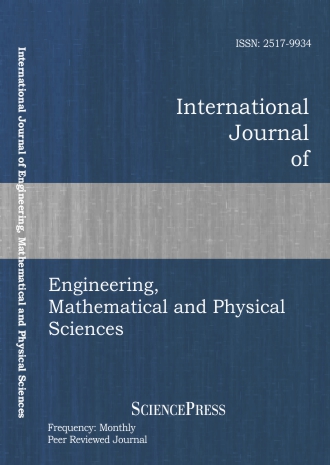
Scholarly
Volume:6, Issue: 12, 2012 Page No: 1738 - 1742
International Journal of Engineering, Mathematical and Physical Sciences
ISSN: 2517-9934
1331 Downloads
Mathematical Programming on Multivariate Calibration Estimation in Stratified Sampling
Calibration estimation is a method of adjusting the original design weights to improve the survey estimates by using auxiliary information such as the known population total (or mean) of the auxiliary variables. A calibration estimator uses calibrated weights that are determined to minimize a given distance measure to the original design weights while satisfying a set of constraints related to the auxiliary information. In this paper, we propose a new multivariate calibration estimator for the population mean in the stratified sampling design, which incorporates information available for more than one auxiliary variable. The problem of determining the optimum calibrated weights is formulated as a Mathematical Programming Problem (MPP) that is solved using the Lagrange multiplier technique.
Authors:
References:
[1] Briedt, F.J. and Opsomer, J.D. (2000). Local polynomial regression